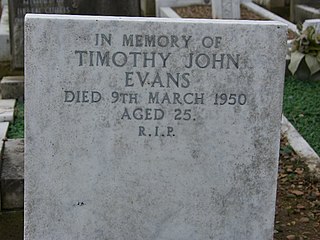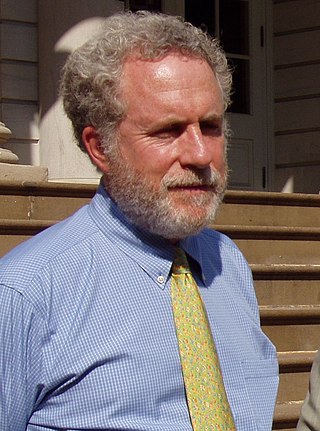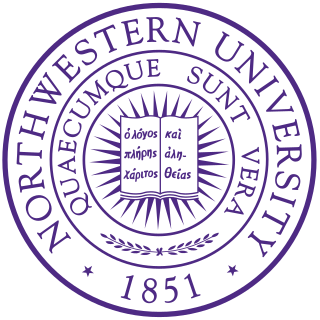The Reid technique is a method of interrogation after investigation and behavior analysis. The system was developed in the United States by John E. Reid in the 1950s. Reid was a polygraph expert and former Chicago police officer. The technique is known for creating a high pressure environment for the interviewee, followed by sympathy and offers of understanding and help, but only if a confession is forthcoming. Since its spread in the 1970s, it has been widely utilized by police departments in the United States.

A miscarriage of justice occurs when an unfair outcome occurs in a criminal or civil proceeding, such as the conviction and punishment of a person for a crime they did not commit. Miscarriages are also known as wrongful convictions. Innocent people have sometimes ended up in prison for years before their conviction has eventually been overturned. They may be exonerated if new evidence comes to light or it is determined that the police or prosecutor committed some kind of misconduct at the original trial. In some jurisdictions this leads to the payment of compensation.
Leroy Orange is an American man, who on January 12, 1984, was arrested along with his half-brother, Leonard Kidd, for the murders of four people at 1553 W 91st Street in Chicago's South Side Brainerd neighborhood based on false accusations by Kidd. Orange was convicted on the basis of a confession he gave after being tortured in Chicago's Area 2 police station under the direction of Commander Jon Burge. Orange confessed to a murder after police placed a plastic bag over his head and applied electric shocks to his testicles. Burge was thrown off the force in 1993 for directing the torture of scores of people in custody.

Peter J. Neufeld is an American attorney, co-founder, with Barry Scheck of the Innocence Project, and a founding partner in the civil rights law firm Neufeld Scheck & Brustin. Starting from his earliest years as an attorney representing clients at New York's Legal Aid Society, and teaching trial advocacy at Fordham School of Law from 1988 to 1991, he has focused on civil rights and the intersection of science and criminal justice.
Steven Allan Avery is an American convicted murderer from Manitowoc County, Wisconsin, who had previously been wrongfully convicted in 1985 of sexual assault and attempted murder. After serving 18 years of a 32-year sentence, Avery was exonerated by DNA testing and released in 2003, only to be charged in another murder case two years later.
A false confession is an admission of guilt for a crime which the individual did not commit. Although such confessions seem counterintuitive, they can be made voluntarily, perhaps to protect a third party, or induced through coercive interrogation techniques. When some degree of coercion is involved, studies have found that subjects with highly sophisticated intelligence or manipulated by their so-called "friends" are more likely to make such confessions. Young people are particularly vulnerable to confessing, especially when stressed, tired, or traumatized, and have a significantly higher rate of false confessions than adults. Hundreds of innocent people have been convicted, imprisoned, and sometimes sentenced to death after confessing to crimes they did not commit—but years later, have been exonerated. It was not until several shocking false confession cases were publicized in the late 1980s, combined with the introduction of DNA evidence, that the extent of wrongful convictions began to emerge—and how often false confessions played a role in these.

The Northwestern University Pritzker School of Law is the law school of Northwestern University, a private research university. The law school is located on the university's Chicago campus. Northwestern Law is considered part of the T14, an unofficial designation in the legal community as the best 14 law schools in the United States.
Rob Warden is a Chicago legal affairs journalist and co-founder of three organizations dedicated to exonerating the innocent and reforming criminal justice: the Center on Wrongful Convictions at Northwestern University Pritzker School of Law, the National Registry of Exonerations at the University of California-Irvine, and Injustice Watch, a non-partisan, not-for-profit, journalism organization that conducts in-depth research exposing institutional failures that obstruct justice and equality. As an investigative journalist in the 1970s, he began focusing on death penalty cases, which led to a career exposing and publicizing the injustices and misconduct in the legal system. Warden's work was instrumental in the blanket commutation of death row cases in Illinois in 2003 and in the abolition of the Illinois death penalty in 2011.
Richard Jason Ofshe is an American sociologist and professor emeritus of sociology at the University of California, Berkeley. He is known for his expert testimony relating to coercion in small groups, confessions, and interrogations.
Thomas F. Geraghty is the Class of 1967 B. James Haddad Professor of Law, and formerly the Associate Dean for Clinical Legal Education and Director of the Bluhm Legal Clinic at the Northwestern University Pritzker School of Law. He has also worked in Tanzania, Uganda, and Malawi on research projects with law students involving juvenile justice, the legal problems of street children, the status of children orphaned by HIV/AIDS, women in the legal profession, and freedom of the press. In 1996, He helped to design a clinical curriculum for the Addis Ababa University School of Law and recently completed an assessment of Legal Education in Ethiopia for ABA/ROLI.
Joseph H. Burrows was an American man who was wrongfully convicted of the murder of farmer William E. Dulan at his home in Iroquois County, Illinois, in 1988. After his conviction and sentence to death in 1989, Burrows was held for nearly five years on death row.
Saul Kassin is an American academic, who serves as a professor of psychology at the City University of New York's John Jay College of Criminal Justice and Massachusetts Professor Emeritus of Psychology at Williams College in Williamstown, Massachusetts.
The National Registry of Exonerations is a project of the University of Michigan Law School, Michigan State University College of Law and the University of California Irvine Newkirk Center for Science and Society. The Registry was co-founded in 2012 with the Center on Wrongful Convictions at Northwestern University School of Law to provide detailed information about known exonerations in the United States since 1989. As of February 6, 2020, the Registry has 2,551 known exonerations in the United States since 1989. The National Registry does not include more than 1,800 defendants cleared in 15 large-scale police scandals that came to light between 1989 and March 7, 2017, in which officers systematically framed innocent defendants.

Making a Murderer is an American true crime documentary television series written and directed by Laura Ricciardi and Moira Demos. The show tells the story of Steven Avery, a man from Manitowoc County, Wisconsin, who served 18 years in prison (1985–2003) after his wrongful conviction for the sexual assault and attempted murder of Penny Beerntsen. He was later charged with and convicted of the 2005 murder of Teresa Halbach. The connected story is that of Avery's nephew Brendan Dassey, who was accused and convicted as an accessory in the murder of Halbach.
Brendan Ray Dassey is an American prisoner from Manitowoc County, Wisconsin, who was convicted of being a party to first-degree murder, mutilation of a corpse, and second-degree sexual assault. He was sentenced to life in prison with the earliest possibility of parole in 2048. A videotaped interrogation and confession when he was 16, which he recanted, was central to his trial. Parts were shown in the Netflix documentary series Making a Murderer (2015). The series examined the 2005–2007 investigation, pretrial publicity, and trials of Dassey and his uncle, Steven Avery, who was convicted of murdering the photographer Teresa Halbach on October 31, 2005. No forensic trace of Dassey was found at any alleged crime scene.
The Ford Heights Four were formerly imprisoned convicts, who were falsely accused and convicted of the double murder of Lawrence Lionberg and Carol Schmal in Ford Heights, Illinois, and later exonerated. Jimerson and Williams were sentenced to death, Adams to 75 years in prison and Rainge to life. Following the murder in 1978, the four spent almost two decades in prison before being released in 1996. This miscarriage of justice was due to false forensic testimony, coercion of a prosecution witness, perjury by another witness who had an incentive to lie, and prosecution and police misconduct. The DNA evidence uncovered in the investigation to clear their names eventually led to the arrest and conviction of the real killers.
Steven A. Drizin is an American lawyer and academic. He is a Clinical Professor of Law at the Northwestern University Pritzker School of Law in Chicago, where he has been on the faculty since 1991. At Northwestern, Drizin teaches courses on Wrongful Convictions and Juvenile Justice. He has written extensively on the topics of police interrogations and false confessions. Among the general public, Drizin is known for his ongoing representation of Brendan Dassey, one of the protagonists in the Netflix documentary series, Making a Murderer.
Laura Nirider is an American attorney and legal scholar working as an associate professor of law and the co-director of the Center on Wrongful Convictions at Northwestern University Pritzker School of Law. An expert on law relating to false confessions, Nirider specializes in representing young people who confessed to crimes that it is thought they did not commit, and working to reform the process of police interrogation. Nirider's work gained international visibility following her involvement in several high-profile cases involving juvenile confessions. Her clients have included Brendan Dassey, whose case was profiled on the Netflix documentary Making a Murderer, and who is still in prison, and Damien Echols of the West Memphis Three, whose case was profiled on the HBO series Paradise Lost and the documentary West of Memphis, who was freed but still convicted under an Alford Plea. She also hosts a podcast on false confessions, entitled Wrongful Conviction: False Confessions.
Joseph P. Buckley is the president of John E. Reid and Associates, an American company based in Chicago, which trains law enforcement and others in The Reid Technique of Interviewing and Interrogation, which is focused on obtaining confessions.



